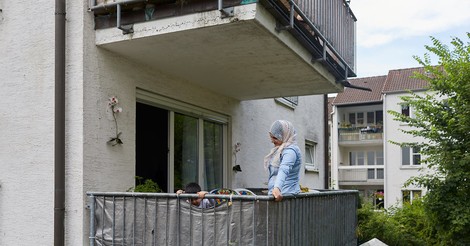Your podcast discovery platform
Curious minds select the most fascinating podcasts from around the world. Discover hand-piqd audio recommendations on your favorite topics.

piqer for: Globalization and politics Global finds
Freelance journalist currently based in Berlin, chronicling the effects of populism on elections in Europe. Former Washington-based political reporter for CBS News, Politico and National Journal.
The Link Between Facebook And Anti-Refugee Violence In Germany
Oftentimes, reading a news story about an academic study is dry, filled with figures and facts but few real-world examples. Not so with this one, from the University of Warwick, which The New York Times' Amanda Taub and Max Fisher write about in great and compelling detail—and in a way that underscores the findings' relevance to current debates about migration and integration in Germany.
The study explores the relationship between Facebook and anti-refugee violence in Germany. Researchers Karsten Müller and Carlo Schwarz looked at each of 3,335 attacks on refugees in Germany over a two-year span, concluding that Facebook can increase a community's propensity for racial violence. Towns with higher Facebook use were more likely to have had anti-refugee violence, regardless of location, economic status or the number of refugees present.
Rather than summarizing the findings of the study overall, the journalists traveled to several of the towns in question to flesh out data points and turn them into human narratives. Through these narratives, they paint a persuasive picture of how individuals can sequester themselves in an online world of hate speech and xenophobia—enough so to commit crimes none of their friends or neighbors believed them capable of.
The influence of Facebook on political opinions and on public discourse more broadly has, of course, been a major topic of discussion in the wake of the 2016 U.S. election and the rise of right-wing populist movements. But the University of Warwick study referenced in this piece, as well as the piece itself, raise another disturbing area in which Facebook appears to have dangerous effects. By their count, such dynamics drove up to a tenth of anti-refugee attacks in Germany.
